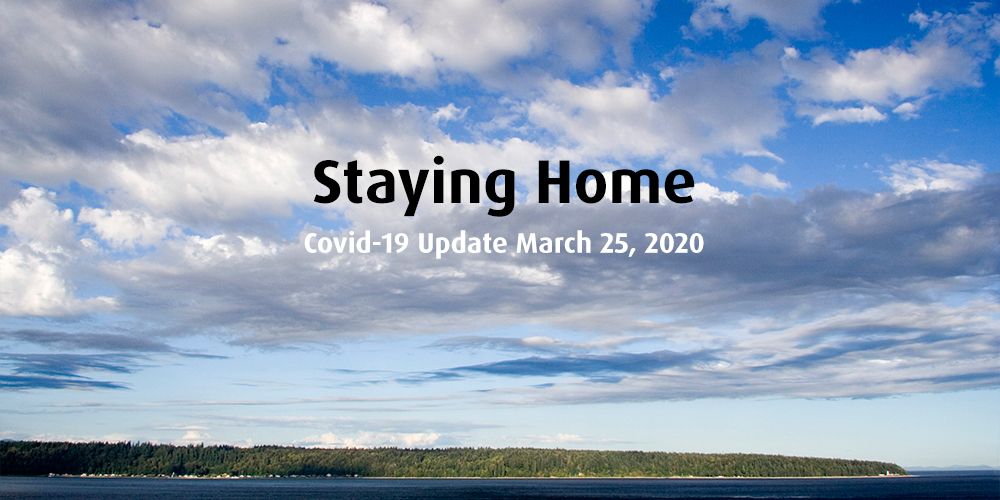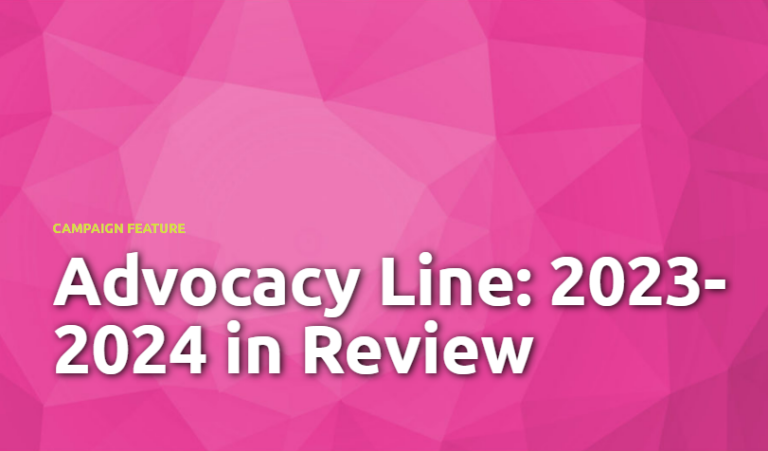
Stay Home, Stay Supported, Stay Connected
March 25, 2020
- Inclusion BC: Stay Home, Stay Supported, Stay Connected
- Stay Supported: CLBC Public Conference Call, March 26 at 11:15 am
- COVID-19 BC Numbers: 659 Confirmed Cases, 183 Recoveries
- Self-Advocates on COVID-19: Staying Safe with Self-Advocates of Semiahmoo
- FSI, PLAN and VELA: An Open Letter to our Political Leaders
- Stay Connected: 5 Tips for Staying Connected from PLAN
#StayHome #StaySupported #StayConnected
Stay home. Stay Supported. Stay connected
Thank you to the self-advocates, families, support teams, organizations — and to everyone who is working together to help and support people with intellectual and developmental disabilities during this COVID-19 pandemic.
At Inclusion BC, we are doing everything we can to ensure no one is left behind. We are connecting with our supporters, our members, and other supportive organizations to focus on the most critical issues for our community.
Our Advocacy for Emergency Support during COVID-Crisis
We are asking our government to provide emergency support to address the urgent need of people with intellectual and developmental disabilities and their families in B.C.’s COVID-19 response. The top three issues we are working on today are:
- Continuous Support: Our community members need to be provided with continuous support in the safety of their own homes.
- Medical Supplies: Guaranteed medical supplies for agencies and families to support people with disabilities with a clear distribution strategy.
- Essential Workers: Social Service workers should be declared essential workers
Please take a look at our release issued last week, which addresses these concerns and others related to safety and social connections:
If you have additional concerns which you would like us to focus on please let us know via email: info@inclusionbc.org.
COVID-19 Questions:
If you have questions about COVID-19, please call:
- COVID-19 Questions: 1-888-COVID19 (1-888-268-4319)
- BC HealthLink: Dial 811
Please refer to the BC Centre for Disease Control for steps for prevention and report any concerns of illness to the provincial hotline 811. Your local health authority will take the lead in providing immediate response to any health and safety incidents.
Advocacy for Personal Support:
If you have questions regarding support and access issues during this time, please call our advocacy line.
- Inclusion BC Advocacy Support Line: 1-844-488-4321
For more information, see: www.inclusionbc.org
We can do this! Stay healthy!
Live teleconference with Minister Shane Simpson and CLBC CEO Ross Chilton
Community Living BC is inviting individuals and families interested in CLBC supports and serviced to join a live conference call on Thursday, March 26, 11:15 am -12:15 pm.
CLBC will be hosting a listen-only conference call with the Honourable Shane Simpson, Minister of Social Development and Poverty Reduction, David Galbraith, Deputy Minister, Dr. Danièle Behn Smith, Deputy Provincial Health Officer, and Community Living BC CEO Ross Chilton for an update for individuals and families on services and supports during the current COVID-19 pandemic.
- When: Thursday, March 26, 2020
- Time: 11:15 a.m. – 12:15 p.m.
- How to call in:
- Vancouver: 604-681-0260
- Elsewhere: 1-877-353-9184
- Participant code: 37568#
- Special Instructions: Call in early, starting around 10:55 am
Submit your Question to CLCB
Community Living BC would like to invite individuals and families to submit your questions in advance by end of the day, March 25, to CLBCInfo@gov.bc.ca with the subject line: March 26 Individual and Family Call. This will allow CLBC to answer as many questions as possible on the call.
For the latest information from CLBC, visit CLBC Information on COVID-19.
British Columbia: March 25, 2020, COVID-19 Update
COVID-19: The Numbers in B.C.
B.C. has recorded 659 positive cases of COVID-19. 183 people have recovered. Here are today’s numbers
- 5 Million B.C. Residents: B.C. residents are under orders to stay home as much as possible and, if outside, to stay two metres apart from others.
- 30,000 Tests: B.C. has tested nearly 30,000 people for the virus.
- 659 Confirmed Cases: There are now 659 confirmed cases of COVID-19 in B.C. as March 25, 2020
- 183 Recoveries: 183 people in B.C. have officially recovered from the disease
- 20 Seconds: Wash hands for 20 seconds to prevent the spreading of the virus
- 13 Deaths: Thirteen people have died from the COVID-19 in B.C.
- 4 Open Parks: All but four of B.C.’s provincial parks have been closed.
- 3 Residential Care Facilities: Three B.C. residential care facilities have reported COVID-19: Little Mountain Place in Vancouver, Evergreen Heights in White Rock and The Lynn Valley Care Centre in North Vancouver
- $5 Billion Relief: The B.C. government has unveiled a $5-billion relief plan for people and businesses.
Dr. Bonnie Henry has said, “The majority of our cases are in the Lower Mainland but no community in this province is immune and we know this virus can spread with people having very minimal symptoms.”
COVID-19 Action Plan: B.C.’s first steps to support people, businesses
March 23, 2020
British Columbians affected by the COVID-19 pandemic will benefit from $5 billion in income supports, tax relief and direct funding for people, businesses and services. “The COVID-19 pandemic challenges our health, our economy and our way of life. People and businesses urgently need support,” said Premier John Horgan. “Our action plan focuses on services to protect people’s health and safety, gives immediate relief to people and businesses, and plans for B.C.’s economic recovery over the long term.”
Province closing certain parks, recreation areas
March 24, 2020
“The mental and physical wellness benefit of being outside during the COVID-19 pandemic response is important, but keeping people safe right now is the most important thing we can be doing,” said George Heyman, Minister of Environment and Climate Change Strategy. “Until we flatten the transmission curve of COVID-19 and people strictly comply with the PHO physical distancing requirement, provincial park access will be restricted.”
See More: BC Ministry of Health
#Self-Advocates on COVID-19
“We’re all impacted by the coronavirus crisis. Some groups of people, at a higher risk of contracting the virus, are the least able to fight it. if you can, stay home and help everyone stay safe.” Krista Milne, Self-Advocate, SAS
“We all value being treated fairly and equally when a crisis hits. Sometimes people with disabilities don’t have equal access to goods and services, medical care, and information. Let’s make sure we are all given the same opportunity to make it through safely.” Manjeet Ganjass, Self-Advocate, SAS
See more: SAS videos on COVID-19
FSI, PLAN and VELA: An open letter to our political leaders
Dr. Henry, Please Don’t Leave Our Loved Ones With Disabilities Behind
Planned Lifetime Advocacy Network (PLAN), Family Support Institute of BC, and VELA Canada sent an open letter sent to our political leaders on March 20, 2020. It was an urgent request for emergency support to help people with disabilities and their families during the COVID-19 crisis.
We write as a coalition of family-based organizations who are deeply worried about access to health care, social supports, disability benefits and other financial support for our family members with disabilities during the COVID-19 pandemic. Your Ministry, in particular, must be aware of the heightened risk this pandemic causes for society’s most vulnerable.
This letter is an urgent plea to the BC government to immediately and specifically address the lives of children and adults with disabilities during this COVID-19 pandemic. We need you to work with us to keep people with disabilities safe, healthy and supported at home.
The open letter asked the Government ministries to: 1) Suspend group activities for people with disabilities during the COVID-19 crisis (mostly done); 2) Reallocate resources to support people with disabilities in their homes (starting to happen); and, 3) Create a special task force to address the needs of people with disabilities during the pandemic.
You can download a copy of the letter and the media release, and then use it to send a personal letter to your local political representatives!
PLAN: Staying Socially Connected
Advice from PLAN.ca on staying connected while practicing social distancing. Make a list of people you are concerned about and make a plan to stay in touch with them. Here are five ideas to get you started:
- Don’t wait to be asked. For a variety of reasons (pride, past hurts, fear of being turned down, loss of confidence, confusion) not everyone will ask for help – even as their situations worsen. Keep the connection alive. Be confident and cheerful. Don’t give up even if the first couple of responses are lukewarm. Or if you haven’t been thanked.
- Make it a team effort. A small group or network is the best way to share the things that need to be done especially if the needs are great. It helps sort out who is doing what and when. A team effort allows you to take care of your other responsibilities. A team effort allows you to spell each other off while ensuring the person who is the focus of your concern is never neglected and taken care of in a timely way.
- The latest technology helps. So does old technology like knocking on the door or picking up the phone. What’s App, Slack, NextDoor, Facetime, private Facebook groups, email and telephone trees are simple ways to stay in touch and keep everyone up to date. You may want to invest in video conferencing platforms like Google Hangouts. Zoom is very good for people who lip read and their business version includes closed captioning and transcripts.
- Little things make a big difference. It all helps. A phone call every day or so, a Netflix subscription, a bag of cookies, running an errand, paying bills online, bringing in the garbage cans, picking up prescriptions, changing a light bulb, exchanging emergency contact information, walking the dog or checking someone’s internet connection.
- The majority of people care and want to help. We can’t emphasize this enough. Despite what you may have read or thought, caring is in Canada’s DNA. Don’t be afraid to ask. Or to accept help. You will actually be doing everyone a favour, including yourself.








